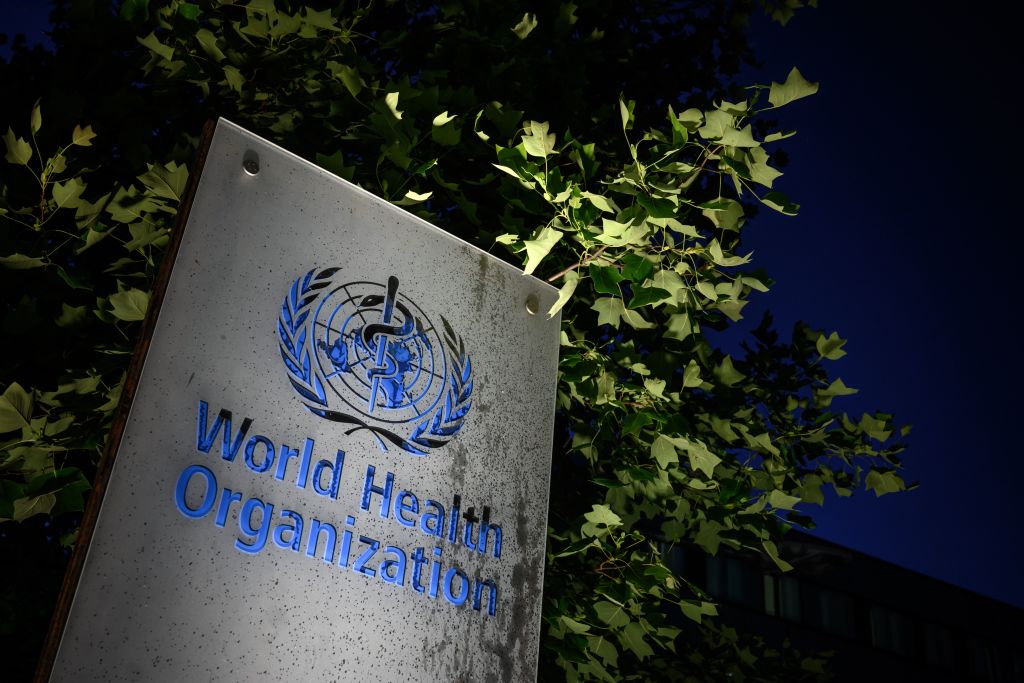Trump in WHO-ville: America Should Stay to Counter Chinese Manipulation

Late last month, horrified onlookers watched as plumes of smoke rose through the air from trash cans behind the Chinese consulate in Houston. Employees were burning paperwork, which caused President Trump to close the consulate and China to vow revenge. American-Chinese diplomatic relations have now gone up in flames. Against this backdrop, it is even more critical for the United States to counter Chinese influence via multilateral diplomacy and restraint. To that end, it should remain in the World Health Organization (WHO) rather than planning to leave.
There is no question that the World Health Organization (WHO) is complicit in China’s attempts to hide what it knew about the deadly coronavirus and when. Yet despite the organization’s failure to hold China accountable for covering up vital early knowledge of the pandemic, America must continue its membership in order to repair the WHO’s overly complex and opaque bureaucracy. Staying would facilitate restraint by strengthening diplomacy and circumventing potential conflict with China.
Rather than leaving, America must demand answers from the WHO and call them out on their complicity. Leaving, on the other hand, would damage Americans’ health. While staying would show goodwill, diplomacy, and leadership, helping to repair an institution that genuinely serves national and global health. Additionally, as Congressman Will Hurd points out, leaving the WHO would empower China and benefit the Chinese Communist Party by widening their influence, thereby isolating America from its allies at a time it needs them most.
At first glance, walking away could be interpreted as a position of modest restraint because America would be leaving an institution where it contributes a good deal of money (both from its government and private citizens). Similarly, staying to repair the WHO could be seen as interventionist and invasive because America would be attempting to chastise the institution itself and control its future behavior with regard to another member (China).
However, upon closer inspection, remaining in the WHO is actually the better restraint move because it enables the U.S. to work with allies to improve transparency and bureaucracy. By behaving diplomatically and restraining itself from walking away from the situation in anger and creating international tensions, America can set a precedent for goodwill and restraint in future multilateral actions. This would be far superior to the hostilities that may arise if the U.S. attempts to further attack China for its manipulation, or creates an organization to compete with the WHO that could lead to proxy power competitions on the world stage.
Additionally, leaving would only exacerbate the existing tensions rising between the United States and China, as the latter moves ever more rapidly towards ending American hegemony. This risks throwing the world into a multipolar order with a potentially unavoidable great power conflict between the U.S. and China, a scenario that must be avoided.
The American Conservative’s Rod Dreher is correct when he notes that the WHO is “in China’s back pocket,” and that this is completely unjustifiable. The Chinese Communist Party has also committed atrocities against the international community by lying about what they knew about COVID and when. Worse still, they silenced their own journalists who tried to speak out, and spread disinformation to cover up their guilt over the pandemic’s spread. They must be held accountable. The WHO, meanwhile, has praised China’s response to the virus instead of calling them out for silencing their own doctors who warned of the outbreak before it spread.
Still, abandonment is not the answer. America must stay in and demonstrate good leadership and diplomatic resolve. Despite the Chinese corruption and possibly inconsistent data, research from the WHO can still be used in models to benefit American and global health, while leaving would be another step in distancing America from its allies in a time when it is critical to work together and show unity. Instead of using the WHO’s shortcomings to write it off as hopeless, the U.S. should leverage them as an opportunity to mend the organization from within and facilitate future restraint.
Megan Rohn is a Fulbright alum who is passionate about foreign policy and veterans issues. Her work has appeared in the Washington Examiner, International Policy Digest, and more.